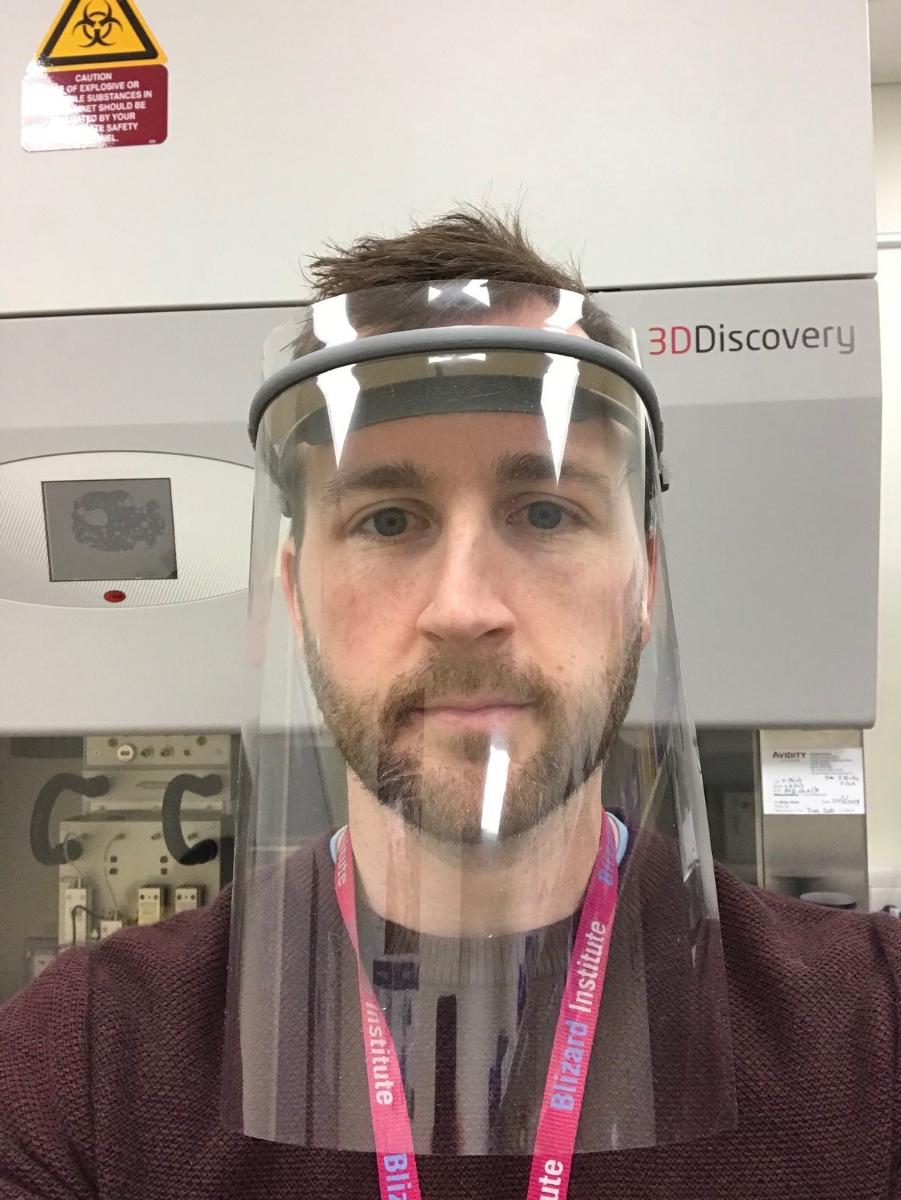3D-printing protective equipment for COVID-19 NHS workers

Barts Health and Queen Mary University of London have teamed up to 3D-print new visors for front line staff at The Royal London Hospital treating COVID-19 patients.
Personal protective equipment (PPE) protects NHS workers against catching coronavirus through droplet transmission while caring for infected patients, and includes items such as safety visors, gloves and eye protection.
The newly designed single-piece visor can hold acetate sheets to provide full face and neck protection for use during consultations and aerosol-generating procedures. The head bands are re-usable after disinfection with alcohol wipes or when submersed in disinfecting solution, and the acetate and elastic band are disposable. The design has been approved by the Barts Health Infection Control team for use in the Emergency Department, Critical Care Unit and other wards.
Barts Charity has awarded £25,000 to assist in the production, which would allow the team to create nearly 10,000 visors by using commercial printing facilities.
Project co-ordinator Professor Shakeel Shahdad, Consultant in Restorative Dentistry at Barts Health NHS Trust, said: “The ingenuity of the combined team has allowed us to start immediate in-house production of 3D printed visors. Our aim is to equip all clinical staff with 3D printed visors and expand out into producing these with faster and higher volumes with injection moulded designs in the coming weeks.”
Reader in Bioengineering, Dr John Connelly from Queen Mary’s Blizard Institute, added: “Professor Shahdad sent out a call last week to those labs with 3D printing capability to ask for assistance in 3D printing visors for face masks. The original visor design has been successfully modified by the Robotics team in collaboration with Queen Mary spinoff company, Keratify, to improve the printing efficiency and stability.
“At the moment, there are around five to six groups at Queen Mary printing visors and sending them over to the Institute of Dentistry where Professor Shahdad’s team is attaching the face shield and elastic bands, before passing them over to The Royal London Hospital.”
